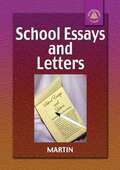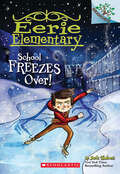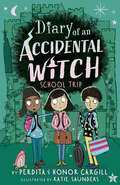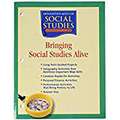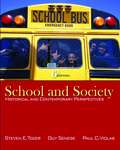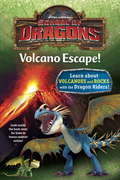- Table View
- List View
Scholastic Literacy, Grade 5, Unit 6: Historical Fiction, Student Resource Book
NIMAC-sourced textbook
Scholastic Literacy, Grade 5, Unit 6: Historical Fiction, Student Resource Book
NIMAC-sourced textbook
Scholastic Next Generation rBook, Stage C
by Kate Kinsella Kevin FeldmanNIMAC-sourced textbook. <P><p> <i>Advisory: Bookshare has learned that this book offers only partial accessibility. We have kept it in the collection because it is useful for some of our members. To explore further access options with us, please contact us through the Book Quality link on the right sidebar. Benetech is actively working on projects to improve accessibility issues such as these. </i> <p> <b>There is another version of this book available at: https://www.bookshare.org/browse/book/733635/ </b>
Scholastic Read 180 Next Generation rBook Stage C
by ScholasticThis Scholastic Read 180 Next Generation rBook Stage C contains workshop on Life Issues, Science, Literature, and Social Studies.
Scholastic Read XL (Grade #7)
by ScholasticIt's the first day of seventh grade. Will Victor make a good impression on the girl of his dreams?
Scholastic Read XL (Grade #8)
by ScholasticSurveys can be a great way to learn about people's opinions and habits. But when you read the results of a survey, there are some details you should check.
Scholastic Read XL, Grade 6, Level 1: Student Anthology
by ScholasticScholastic Read XL, Grade 6, Level 1: Student Anthology is a school textbook, full of short stories with discussion questions at end of each story.
Scholastic Spelling Level 3
by Louisa Moats Barbara FoormanThis book provides students an easy way to understand spelling.
Scholastic rBook, Flex
by ScholasticA student workbook that provides instruction in reading comprehension, vocabulary, and writing and grammar skills.
School Freezes Over!: A Branches Book (Eerie Elementary #Bk.5)
by Jack ChabertIt's getting cold at Eerie Elementary!Pick a book. Grow a Reader!This series is part of Scholastic's early chapter book line, Branches, aimed at newly independent readers. With easy-to-read text, high-interest content, fast-paced plots, and illustrations on every page, these books will boost reading confidence and stamina. Branches books help readers grow!Eerie Elementary is at it again! In book #5, a terrible snow storm hits the school, and the students are trapped. Soon, the hungry school begins to freeze from the inside out! Icicles drip from the ceiling and snow piles fill the hallways! Then Antonio turns into an ice statue -- making him a yummy popsicle for the school to dine on! Can Sam and Lucy turn up the heat in time to save the students?
School Trip (Diary of an Accidental Witch #5)
by Honor Cargill Perdita CargillThe sixth-grade trip to a spooky castle is Bea's first time away from home, and she's nervous. Can her friends help her overcome her fears and enjoy the trip?Living in Little Spellshire is the best, and Bea wouldn't want to be anywhere else! Even though she is VERY excited about her upcoming school trip, she&’s also a little nervous—it&’s her first witchy school trip and the farthest she&’s been from home and from Dad. The sixth graders will be going to one of the spookiest castles EVER. Can Bea overcome her fear of being away from home and enjoy the trip? Maybe with the help of her friends! With black-and-white illustrations throughout. Told through Bea's diary entries, the Diary of an Accidental Witch series invites readers to follow Bea on a humorous journey of self-discovery as she learns where she truly belongs.
School and Society: Historical and Contemporary Perspectives (6th Edition)
by Steven E. Tozer Guy Senese Paul C. ViolasThrough the use of a consistent analytic framework, this text shows how and why certain school-society issues first arose in this country and how they have changed over time.
School of Dragons #1: Volcano Escape! (DreamWorks Dragons)
by Random House Kathleen Weidner ZoehfeldAn all-new nonfiction series featuring DreamWorks Dragons! Hiccup, Toothless, and other exciting characters from DreamWorks Dragons help readers discover the real-life science and history behind volcanoes! Filled with full-color photos and lots of fun facts, these 80-page books based on JumpStart's School of Dragons online game are the perfect way to help young readers soar into the world of nonfiction.From the Trade Paperback edition.

